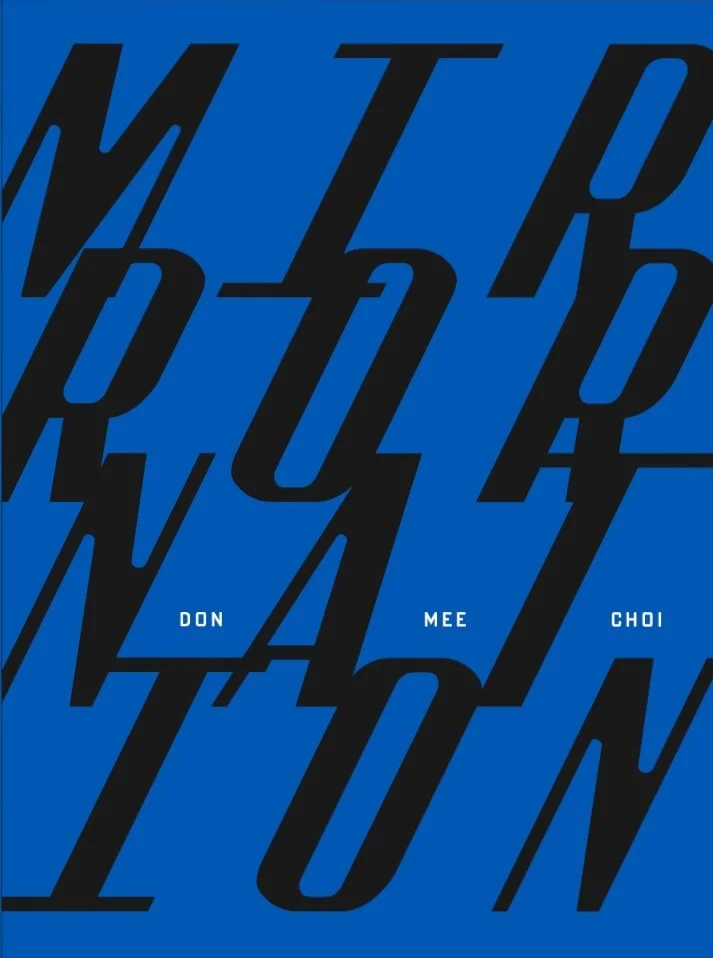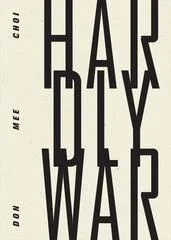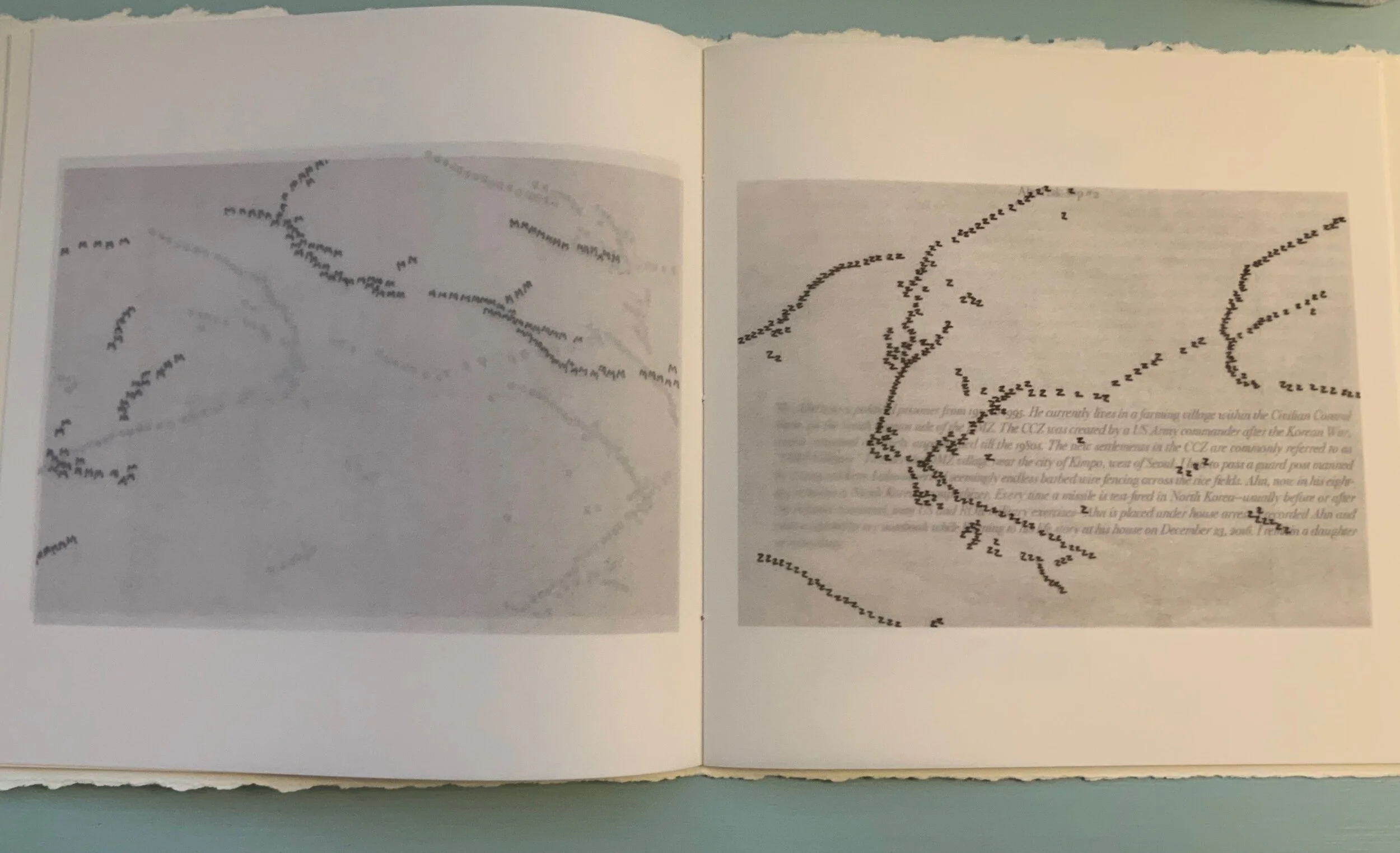Available from Wave Books, 2020
UK & C and Europe: available from And Other Stories, 2025
Woven from poems, prose, photographs, and drawings, Don Mee Choi's DMZ Colony is a tour de force of personal and political reckoning set over eight acts. Evincing the power of translation as a poetic device to navigate historical and linguistic borders, it explores Edward Said's notion of "the intertwined and overlapping histories" in regards to South Korea and the United States through innovative deployments of voice, story, and poetics. Like its sister book, Hardly War, it holds history accountable, its very presence a resistance to empire and a hope in humankind.
Winner, National Book Award for Poetry
Judges Citation: “Don Mee Choi's urgent DMZ Colony captures the migratory latticework of those transformed by war and colonization. Homelands present and past share one sky where birds fly, but “during the Korean War cranes had no place to land.” Devastating and vigilant, this bricolage of survivor accounts, drawings, photographs, and hand-written texts unearth the truth between fact and the critical imagination. We are all “victims of History,” so Choi compels us to witness, and to resist.”
Finalist, The 2021 T.S. Eliot Four Quartets Prize, Poetry Society of America
Reviews:
Choi’s snow geese are themselves the living memory of exile when in the opening pages of DMZ Colony she sees a flock of them migrating at the 38th parallel where it crosses St. Louis, Missouri. Choi then turns this literal and figurative image of snow geese into a drawing of the letters D, M, and Z via a process of tracing a sketch she made of them flying (all three books contain drawings by Choi, which augments their hybrid and mixed-media quality). A trace of a trace. “Memory’s memory.” — Alan Gilbert, e-flux Journal
“‘Cruelty and beauty—how do they coexist?’ Don Mee Choi asks this question in the middle of her book DMZ Colony. To say that she answers that question is not quite right. What Choi does is harder: she gives us new ways to think it through—she creates a vocabulary, syntax, multiple codes, maps, and sounds so that we can enter specific devastations, see how they weave, like all colonial disaster, backward and forward in time.”—Jennifer Kronovet,Poetry Daily
"Reading Don Mee Choi’s DMZ Colony is an experience that plunges into a theatre of words, a theatre of pain in which words are everything… The poet’s presence moves among history, like a phantom without a face… each reading of DMZ Colony enacts a transition of history from within, which calls for individuals to break the silence—the last and the most essential border one can carry."—Pareys Liu Yiyi, Cha Journal
“Though many translators’ careers can be characterized as sustained exercises in twinning – a translator and a writer speaking at once, their identities intertwined – Choi’s is a particularly salient example.”—April Yee, The Times Literary Supplement
“Here that awareness is embodied in disjointed and dreamlike dialogue and the coming together of both languages in one fractured twin-self… The result is a book for our age, a radical (in that it builds from the roots out) philosophy, a new angel of history backing away slowly from the wreck of the century.” — Sasha Dugdale, PN Review
“DMZ Colony is nothing if not a work of documentary poetics, taking its place in a lineage that encompasses Charles Reznikoff’s Testimony, Muriel Rukeyser’s Book of the Dead, and Ezra Pound’s Malatesta Cantos… Choi’s DMZ Colony is a haunting and intricately woven recounting of horrors that is shot through with affection and utopian aspiration.” — Mark Scroggins, Hyperallergic
“The way Choi yields to Ahn’s voice while bringing out its aesthetic dimension reminds me of the stories in The Emigrants by W. G. Sebald.” — Jae Kim, Los Angeles Review of Books
“Choi’s words point us toward a world beyond the American imagination. A world in a perpetual state of war—or at the brink of it—that I, or you, are detached from and entangled with. Who are the people forced to leave their homelands? Who are the people with wings, flapping incessantly in foreign countries, unwelcomed and unable to land?” — Woogee Bae, Poetry Northwest
“Choi’s poetry is an act of collective witness, a testament to the power of remembrance in honoring the past while orienting ourselves toward the future.” — Isabella B. Cho, The Harvard Crimson
“Overlapping memory always longs for return, the return of memory,” writes Choi. But memory cannot return to the original site of meaning. It can only return to its after-image, the image displaced from the original (i.e. the repetition of the word foreign).— Alina Stefanescu, On the Seawall
“Angels are in important image to end on: both ethereal and earthly, at once dead and living, here and not here. Where ghosts are passive, angels are active. They also take our minds back to the migrating birds, sharing with them both wings and the habit of crossing and returning between realms – the wings also represent twoness, twins or two mirrored halves. It is astonishing that Choi is able to combine so many of the complex strands of these books in a single symbolic figure, but in the figure of the angel she achieves just that.”— Chris Edgoose, Wood Bee Poet
“And everywhere, everywhere there are birds and wings: a “language of return,” both calling Choi back to the place of her birth and reflecting her artistic and personal migration.” —Ian Maxton, Spectrum Culture
“There is a hopefulness to her poetry, one that includes the possibility of transcendence and flight, but it is grounded in a deeply macabre reality.” — Kion You, The Los Angeles Review
“ a poetry book taking on the crimes of imperialism” — Editor’s Choice, NY Times Books Review
“DMZ Colony is, in the Barthesian sense, a writerly text.” —John Wall Barger , Rain Taxi Review, Summer 2020
“Virtuosic in its range and empathy, this is a book that shifts the reader’s understanding of historical narrative from one of war to one of flight.” A starred review in Publishers Weekly
“DMZ Colony is a gestalt project…structured yet tangled, leading the reader forward while speaking from all sides.” —Madeline Vardell, The Arkansas International
“This way of seeing, at once prophetic and hardboiled, weaves through all her poetry, including her latest book, DMZ Colony (Wave Books, 2020), the second in her trilogy…. If Hardly War is at root a familial meditation—Stephen Sohn, an English professor at the University of California, Riverside, describes the work as a "salvage project" of the Korean War generation—then DMZ Colony extends the inquiry to more bodies, places, and times.”—E. Tammy Kim “Long Division,” Poetry Foundation
“‘The language of capture, torture and massacre is difficult to decipher,’ writes the eminent Seattle-based translator and poet, and yet she has made an oeuvre from the attempt.”— Stephanie Burt, Academy of American Poets
“Choi’s DMZ Colony is as much an entity as it is a place, a meta-discursive domain wherein its throng of unlikely inhabitants—endangered birds, political prisoners, orphans, refugees, all colonized subjects and outcasts of empire—are alternately declared and concealed. Collectively, they indeed amount to a colony of sorts, one that thrives off its own premise. It is the necessarily speculative nature of the DMZ, which bars all forms of material access, that provides the opportunity and very basis for Choi’s translational mode. That mode, in turn, gives voice, and makes real imagined worlds.”—Jed Munson “Translation as Mode in ‘DMZ Colony,’” Chicago Review of Books




























